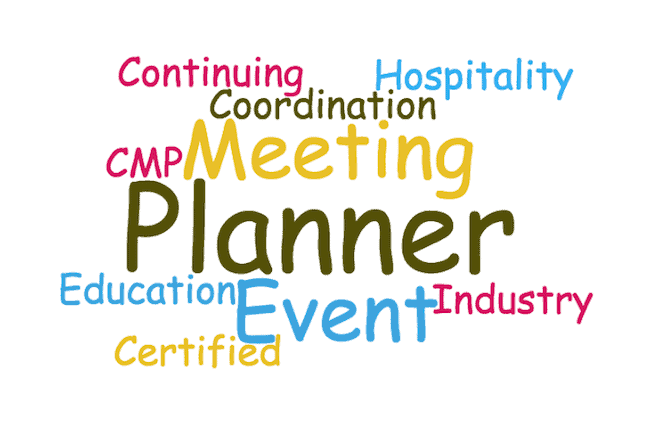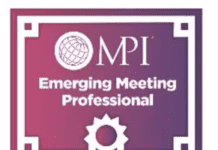
Certified Meeting Planner
Becoming a Certified Meeting Professional (CMP) takes several steps, as the CMP application requires that interested individuals complete two sections before applying to become a CMP. Those include professional and/or education experience as well as an industry internship or continuing education. For those individuals interested in receiving a CMP designation, here are five steps to help you acquire certification.
Research What Kind of Meeting Planner You’d Like to Become
Take into consideration all aspects of the job before going for the CMP certification program. Meeting planners often spend more than 40 hours a week at work and are usually required to travel a lot while planning meetings. According to the U.S. Bureau of Labor Statistics, the 2014 median salary for a Certified Meeting Planner was $46,490. After you determine being a certified meeting planner is for you, decide if you want to be a generalist event planner (helping plan any type of event) or specialize in a specific type of event management such as corporate events, sports events, medical events and so on.
Complete a Formal Education Program
Most certified meeting planners have a bachelor’s degree in marketing, public relations, communications or business. Taking a degree program that focuses on hospitality and event coordination will teach you how to manage budgets, work with clients, review contracts and solve event-specific problems. Plus, it will lower your minimum requirement to meet Section I of the CMP Application to only 24 months of qualifying full-time work experience, opposed to the 36-month minimum requirement for those who didn’t get a bachelor’s degree in an industry-specific program.
Gain Experience & Build a Portfolio
If you didn’t get a degree specific to hospitality or event coordination, interning or apprenticing with a professional event planner is a great way to start gaining experience. To meet Section II of the CMP Application requirements, you have to complete a minimum 200 hours of supervised internship experience or complete 25 clock hours of industry-related continuing education with the past five years. An internship will also help you build a list of contacts as well as a portfolio of events you helped plan. Make sure to keep records such as photographs and professional references from clients and vendors who can attest to your job performance.
Apply to Become a CMP
After you meet Section I and II of the CMP Application Requirements, you can fill out the application and pay the fee to take the CMP exam. You will receive an email within four to six weeks of application to determine if you are approved to be a CMP Candidate, which gives you one year to take the CMP examination.
Take the CMP Examination
To take the CMP examination, you need to register and pay the exam registration fee by the deadline indicated in the candidate notification email. The exam is computer based, and it tests the skills and knowledge of meeting professionals. Several months of preparation are recommended, and the CMP International Standards can be used as a study guide. The candidate will receive results eight weeks after taking the exam to see if they passed or not, and certificates are mailed to passing candidates four to six weeks after they receive their results.










